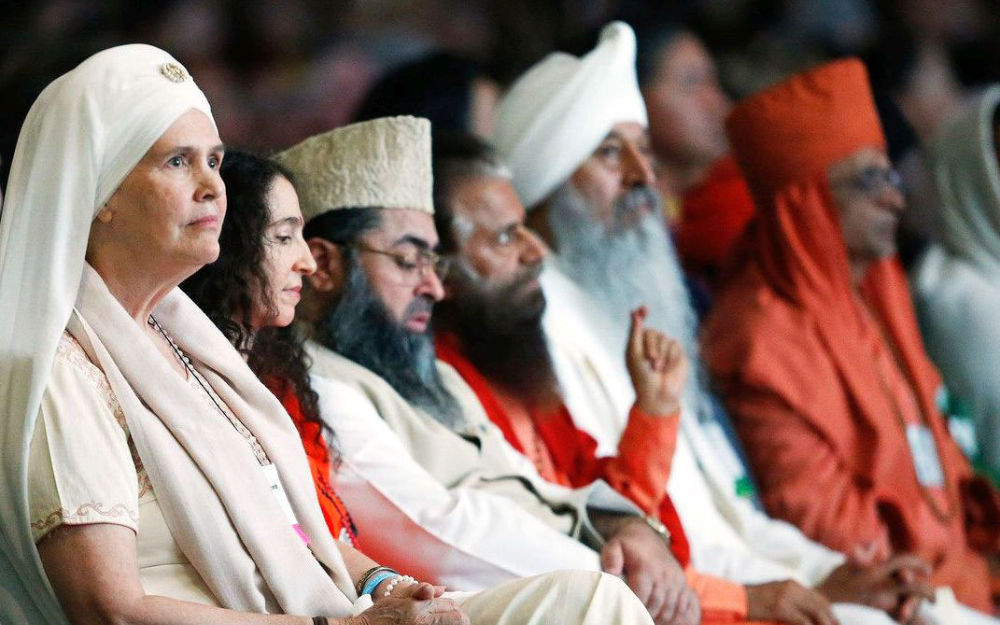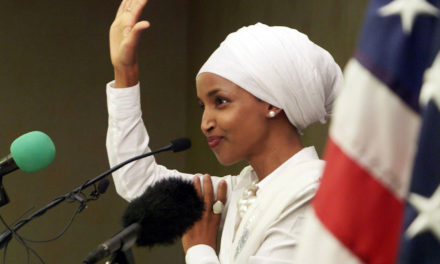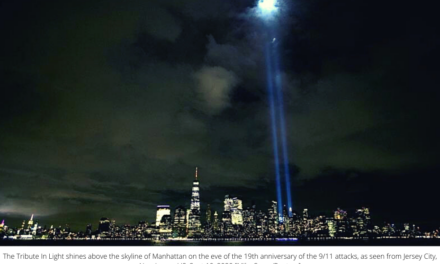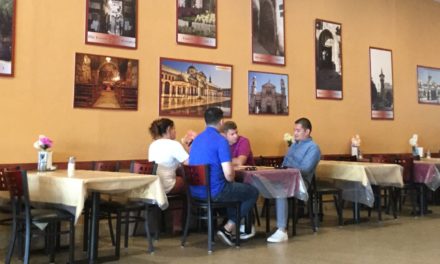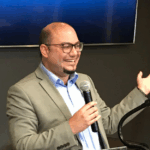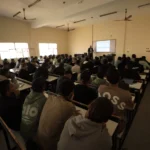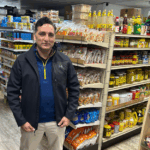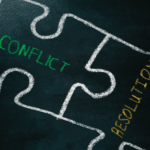In 1893, the city of Chicago hosted the World Columbian Exposition, an early world’s fair. So many people were coming to Chicago from all over the world that many smaller conferences, called Congresses and Parliaments, were scheduled to take advantage of this unprecedented gathering. One of these was the World’s Parliament of Religions.
The Parliament of the World’s Religions will reconvene next year in Chicago, Ill., where it began 130 years ago. The global event will be held on August 14-18 at McCormick Place.
Sessions by the Parliament are open to the public, drawing as many as 10,000 people in recent years. Early bird registration for the 2023 event closes on December 15th, 2022.
In 1893, more than 27 million people visited Chicago for the World Columbian Exposition. Several satellite events were organized around the world fair including what may have been the first interfaith gathering of its kind, the Parliament of the World’s Religions.
Unlike encounters by faith leaders and theologians in the past, it was not a debate or a bid to proselytize or convert, but an open series of discussions, an opportunity to hear other opinions and find commonalities as well as distinctions.
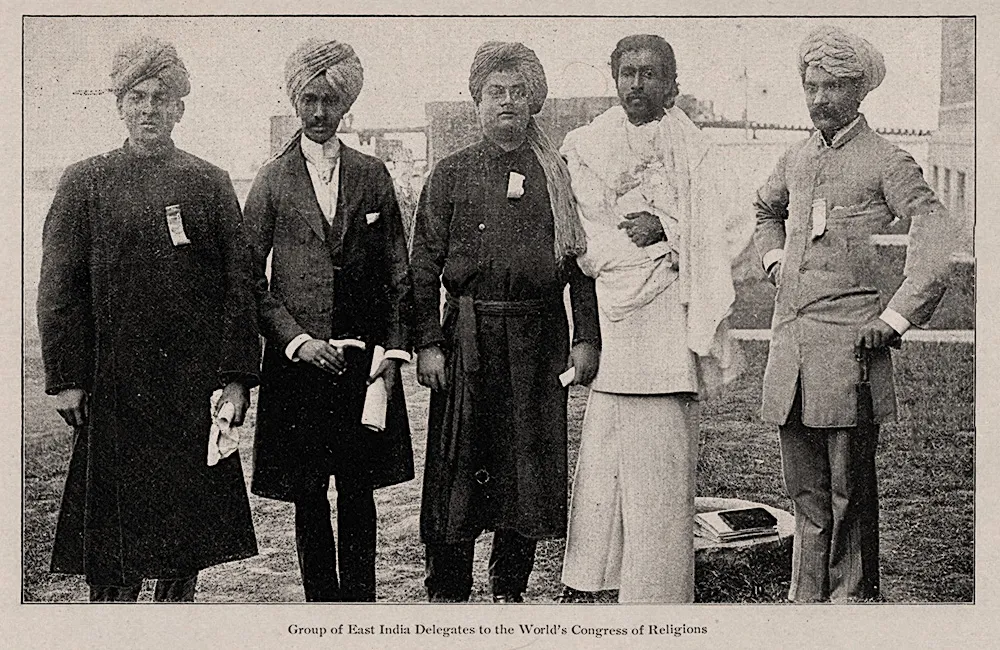
Swami Vivekananda (center) and other East India Delegates to the Congress of Religions at the 1893 World’s Fair. [Image from Pictorial Album and History of the World’s Fair and Midway (Harry T. Smith & Co., 1893).]
The original 1893 Parliament included presentations by Buddhists, Jains, Hindus, Theosophists, Protestant Christians, Swedenborgians, Spiritualists—and one Muslim. “Alexander Russsel Webb was the only one representing Islam. He was an American writer, publisher and U.S. Consul General in the Philippines where he converted to Islam in 1889,” said Dr. Mohammad Siddiqi, professor emeritus of journalism and public relations at Western Illinois University and convenor of the Muslim Host Committee for the 2023 Parliament.
Dr. Siddiqi has a lengthy resume of involvement with the Parliament and interfaith activities, starting with the Parliament’s rebirth in 1993 after a century of dormancy at Chicago’s Palmer House.
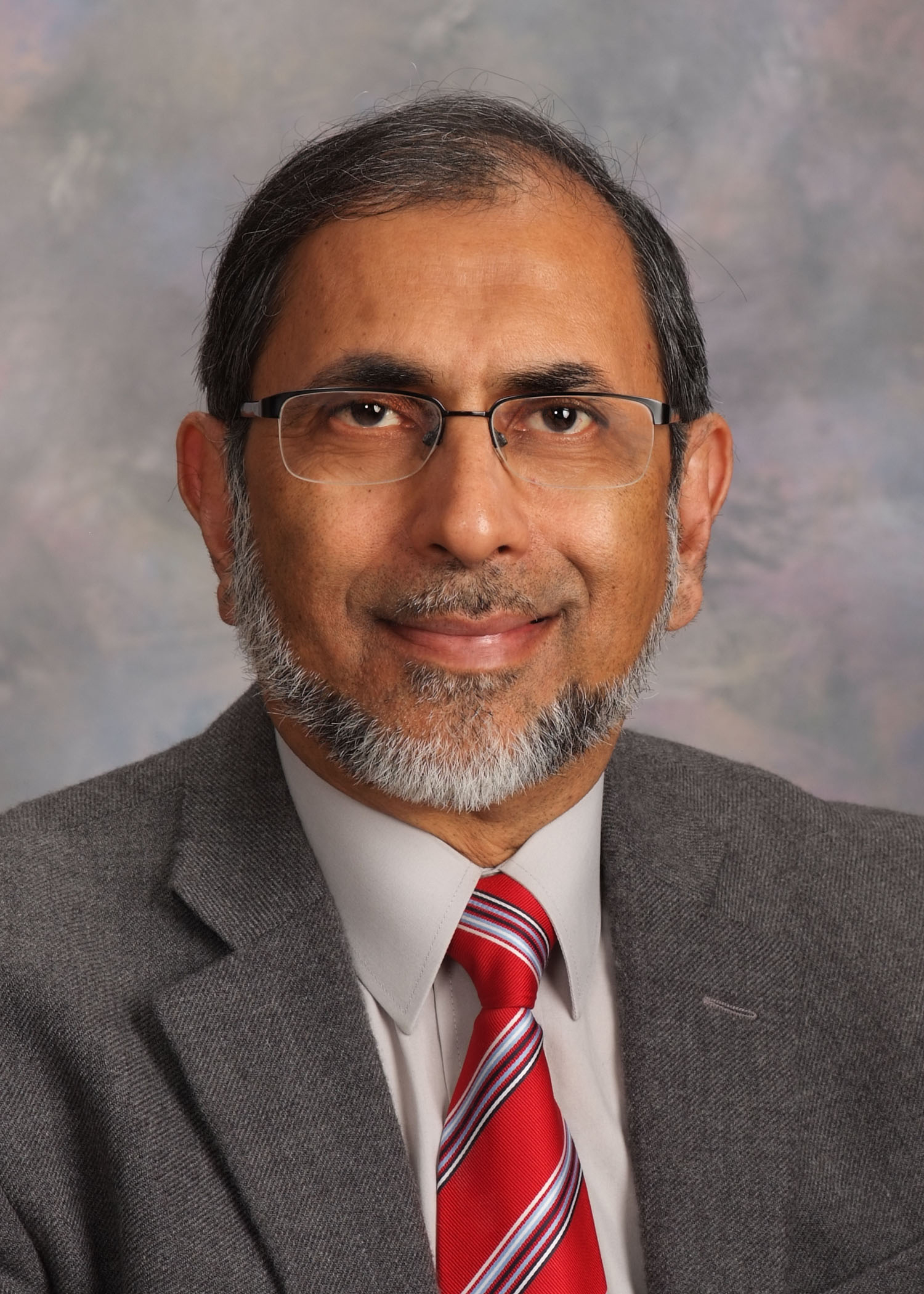
Dr. Mohammad Siddiqi
“I initiated the formation of the Muslim Host Committee for the 2023 Parliament,” he said. Dr. Siddiqi served on the Parliament’s board of trustees for six years and chaired the program committee for the 2015 Parliament in Salt Lake City. He is also a board member and treasurer of the World Council of Muslims for Interfaith Relations, one of the sponsors of the 2023 Parliament.
“I am excited about another wonderful opportunity to meet and greet leaders and adherents of various faiths, cultures and spiritual traditions,” Dr. Siddiqi added.
The scope and diversity of the Parliament of the World’s Religions has grown since its initial convocation in 1893. Participants at the 1993 Parliament included the 14th Dalai Lama and Cardinal Joseph Bernardin. The 1999 Parliament in Cape Town, South Africa, opened with the showing of the international AIDS Memorial Quilt.
The 2004 Parliament in Barcelona, Spain, addressed social issues such as religiously motivated violence, the plight of refugees, access to safe water and debt reduction in developing nations.
At the 2009 meeting in Melbourne, Australia, the Parliament addressed Aboriginal reconciliation and environmentalism.
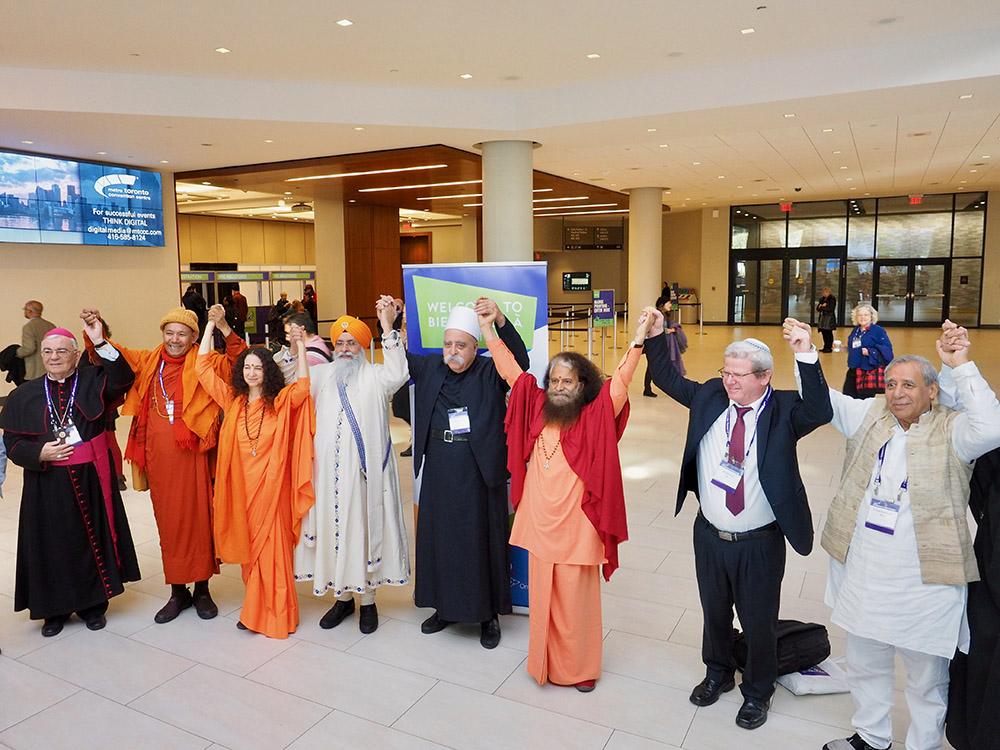
Representatives of different religions come together in harmony.
During the closing ceremony of the 2015 Parliament, Imam Abdul Malik Mujahid, the Chicago-based founder of Sound Vision and Radio Islam, announced that the Parliament would convene every two years. The target was missed, just slightly, with the next Parliament taking place in Toronto in 2018. Because of the pandemic, the 2021 Parliament was held virtually. With 2023, the event will be in person and back on schedule.
“Muslims have played a key role since the relaunching of the Parliament in 1993—in envisioning the role of the Parliament, in its functioning and in its operations,” said Dr. Siddiqi. “There have always been two, three and sometimes four Muslims in the Parliament’s board of trustees.” Imam Mujahid served as chair of the Parliament from 2009 to 2015.
According to its mission statement, “The Parliament of the World’s Religions was created to cultivate harmony among the world’s religious and spiritual communities and foster their engagement with the world and its guiding institutions in order to achieve a just, peaceful and sustainable world.”
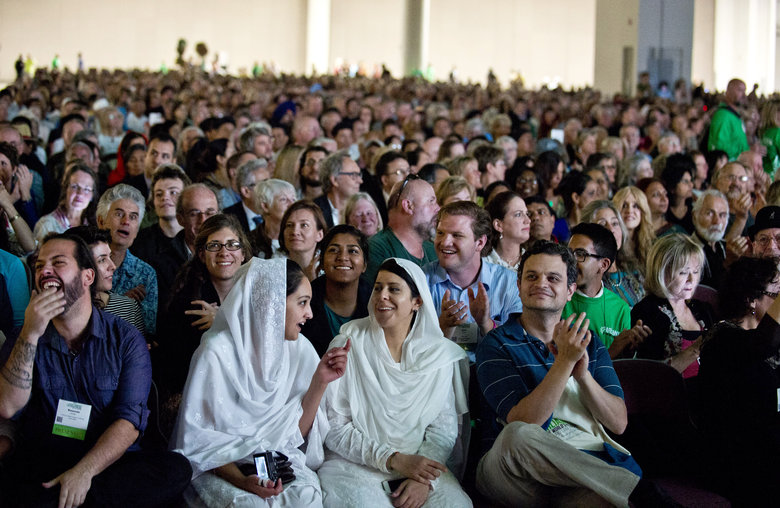
(Lennis Mahler/The Salt Lake Tribune/AP) The 2015 Parliament of the World’s Religions.
The theme for the 2023 Parliament is “A Call to Conscience: Defending Freedom and Human Rights.” “The Parliament invites faith leaders from across the globe to address issues related to human rights and freedom and provide a call for action based on their faith’s perspectives,” Dr. Siddiqi said. “Its objective is to provide an international forum for dialog and understanding that result in initiatives to enhance human rights and freedom.”
The Parliament has asked participants to submit program proposals that address the theme in the following specific areas.
- Faith and Democracy
- The City of Chicago
- Faith and Interfaith Understanding
- Peace & Justice
- Climate Action
- Indigenous Peoples
- The Next Generations
- Women and Girls
- Towards a Global Ethics
Is the Parliament simply an opportunity for members of different traditions to talk with each other—or are any collaborative efforts planned around issues such as social justice and climate change?
“Both!” said Dr. Siddiqi. “The past Parliaments have attracted participants from more than 200 diverse religious, indigenous, and secular beliefs and more than 80 nations. It is a unique opportunity to know and learn about so many different faiths and spiritual traditions. It is a platform that promotes tolerance and inter-religious understanding.
It is a venue that offers hope for a brighter and better world. The five-day deliberations leading to several documents that may guide actions for the common good of humanity. The underlying assumption is that faiths and spiritual traditions can forge an alliance based on their shared heritage that can work to resolve conflicts and inspire people to achieve lasting peace.”
Attendees at the 2023 Parliament will enjoy access to all the plenary sessions, hundreds of breakout sessions, art and cultural exhibits, performances, a film festival as well as opportunities to connect with individuals and organizations committed to justice, peace and sustainability.
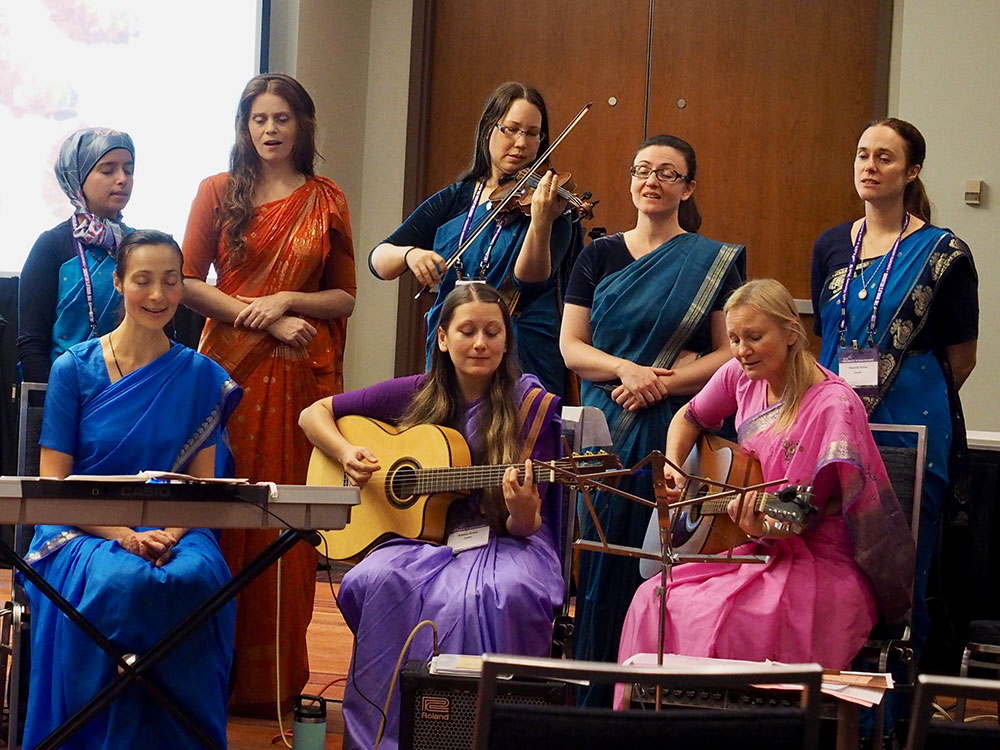
Sangit Surabhi, a female instrumental group based in Ottawa, performed a selection of Sri Chinmoy’s meditative songs at the 2018 Parliament of World Religions event in Toronto, Canada.
“Each Parliament has led to several collaborative efforts including peace initiatives in various parts of the world, climate actions, youth engagement, empowering women to address issues of concern, and caring for the earth’s resources,” Dr. Siddiqi said.
The Muslim Host Committee for the 2023 Parliament includes two members from Wisconsin, Janan Najeeb of the Milwaukee Muslim Women’s Coalition and Dr. Zulfiqar Ali Shah of the Islamic Society of Milwaukee.
“The purpose of the Host Committee is to enhance Muslim participation in the Parliament and to help the Parliament promote its programs among Muslims all over the world,” Dr. Siddiqi explained. Similar host committees have been formed by members of other faiths in the Greater Chicago area.
The World Council of Muslims for Interfaith Relations and the Muslim Host Committee are taking an active role in shaping the 2023 Parliament’s agenda, submitting “more than a dozen program proposals,” according to Dr. Siddiqi. “Together, we hope and encourage Muslims to register for the 2023 Parliament and take advantage of the early bird rate that is due to expire on December 15, 2022.”
For more information and to register to attend the 2023 Parliament of the World’s Religions, visit https://parliamentofreligions.org/.
